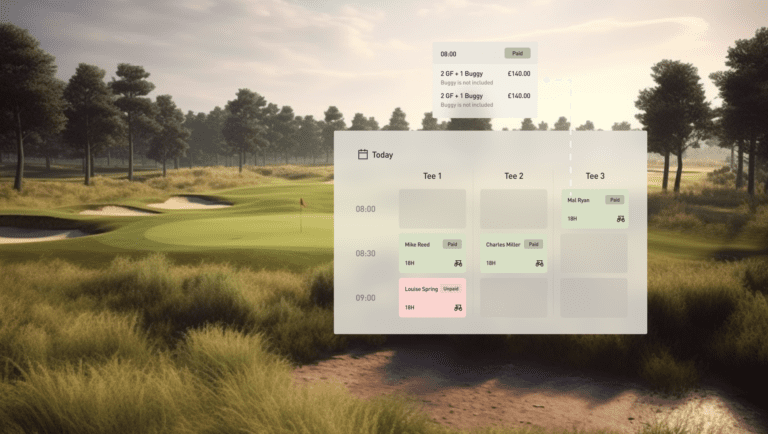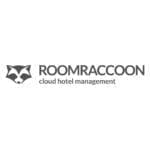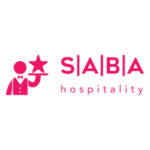There’s a common consensus in the hospitality industry: when it comes to technology, hotels tend to be behind a couple of years.

There hasn’t been a need to update tech stacks because, on average, hotels have had financial success over the past 5 years. This combination of revenue growth with their current tech stack has resulted in hotels not wanting to experiment with technology.
It’s the old ‘if it ain’t broke, why fix it?’ philosophy.
And then 2020 hit and ‘it’ broke.
The pandemic has caused a rather large and painful hiccup in the profitability of the hospitality industry. We’ve seen hotels, venues, and restaurants temporarily close their doors and layoff the majority of their staff. Statista is predicting that we are going to see a loss of 100 million jobs worldwide in 2020 in the global tourism market which will negatively impact GDP worldwide by $2.68 trillion (USD).
Hoteliers are being forced to make tough decisions in the face of economic uncertainty. They are being asked by owners to evaluate their current operating costs and find creative ways to cut spending while maintaining efficiency. Over the past few months, we’ve seen hotels freeze their spending, cross-train staff in multiple departments, and evaluate and invest in their tech stack.
The last one might seem counterintuitive. Why would you do any spending during an economic crisis? But, believe it or not, investing in your property today can save you time and money while increasing your efficiency and profitability in the future.
It’s important to acknowledge that when coronavirus first hit, hoteliers were forced to be reactive. Today hotels are slowly opening up but are not seeing the same occupancy rates of pre-COVID times. As we anticipate the return of pre-COVID travel, we sit in a period of stagnation. Fortunately, history has taught us that the hospitality industry is resilient and has always been able to bounce back after a disaster. We saw this after 9/11, SARS, H1N1, and the 2008 financial crisis.
Do not waste this slow-down. It should be used as an opportunity for hotel operators to evaluate their current tech stack and make smart, data-based decisions for the future.
THE AUDIT
I don’t know of anyone who likes the word audit. It immediately makes me think of the taxman and a massive paperwork-filled headache. However, in-house audits are important when evaluating your current situation. They provide you with data that can assist you in making educated decisions when deciding which pitches to present to ownership for approval.
When auditing your current tech stack, you’re going to review your historical reports and rank each product based on factors that are important to your property. Record this in a product analysis tool or a spreadsheet. Information you want to track includes (but is not limited to) price, payment schedule, customer support, ROI or KPIs achieved, product deployment, contract details, tech upgrades, hotel usage, and overall satisfaction of the product.
Rank the products for reassessment from critical to not important and then start your research.
THE FUTURE OF HOTEL TECH STACKS
As of today, we’re slowly seeing markets open and government restrictions relax, however businesses are still being encouraged to reduce or eliminate the number of touch points for their customers and staff. This includes encouraging working from home, adding automation to the customer journey, and presenting cleanliness protocol to patrons in an obvious manner.
There’s a lot of debate in the hospitality industry. Will we ever return to normal? It’s my personal belief that there are going to be two stages of normalcy: pre-vaccine and post-vaccine.
When investing in new technology, you need to consider what world it falls into and if it will be necessary to continue using in a post-vaccine world.
For example, hotels are currently investing in forehead thermometers while others are choosing to invest in thermal tracking. Temperature checks require less upfront capital but do require more labour whereas heat tracking sensors can be managed by one individual but have an exponentially higher overhead.
The challenge is determining if the investment is necessary only in a pre-vaccine world or if it will be adopted by the hospitality industry and necessary in a post-vaccine world.
WHAT TO LOOK FOR
It’s during these times of uncertainty that allow for innovation and disruption of the current market. When choosing new technology, it’s important to consider the following:
AUTOMATION
Automation is key – especially in a pre-vaccine world. Not only does it improve the overall guest experience, it also eliminates the number of touch points a customer has on their journey at your property.
Imagine you’re able to check-in through an app on your phone and you’re immediately emailed your room key. When you walk into the lobby, the elevator is automatically called for you and your room floor is selected through your key (that’s stored on your phone). When you walk up to your room door, it automatically opens. You’re able to download a remote control app onto your phone and watch TV.
This prevents the guest from interacting with high risk germ areas while creating a seamless experience through the standard guest journey.
So what automation do you invest in? There’s always a risk when investing in your tech stack. Make sure to do a cost-benefit analysis before finalizing the paperwork. Automating check-in saves your customers time and lowers your labor cost. While automating your elevator through key readers can be a multi-million dollar project. It might be more cost effective to hire an elevator attendant to do that specific job in a pre-vaccine world.
CLOUD-BASED SYSTEMS
Hoteliers used to live in a world where software was only available on site. We often refer to these server-based systems as legacy systems. These don’t allow for flexibility especially when encouraging a work from home culture.
Cloud-based systems are the future. They store everything on the cloud and users have access to the tech from anywhere in the world. During the industry shut down, properties with cloud-based technology in place were able to access their work whereas legacy users had to create rotating schedules to access the database.
Cloud-based technologies have other benefits besides global accessibility. They’re also typically more affordable, have shorter on-boarding time, are easy to use, have more integration capabilities and are customizable to your property’s needs.
INTEGRATED TECHNOLOGY
There is not one system that can do everything for your property. But you can build a tech stack where the products communicate to each other through hotel tech integrations. Look to invest in forward thinking companies that want to partner with other businesses so that buyers have access to an integrated partner marketplace.
This is most common in tech companies that have an open API.
It’s highly recommended that your PMS – the brain of your hotel – is both cloud-based and is able to connect to as many technologies as possible. Software like MEWS and Apaleo were built on this premise and continue to disrupt and improve the hospitality industry with this revolutionary concept.
SCALABILITY
Scalability is important to look at if you work for a hospitality group or owner that wants to grow their portfolio. Life is easier (and usually cheaper) when everyone is using the same systems but not all properties are the same size or have the same requirements.
I encourage you to look for tech that’s appropriate for a limited-service hotel and can scale up to work for a hotel chain. Tech companies that have a scalable business model tend to reflect this in their pricing which makes them attractive to hotels of any size.
FINAL THOUGHTS
The hospitality industry is starting to recover. Now is the time to bring the hospitality industry into the future by investing in forward thinking technology. It’s important to consider if the technology will be worth it in a post-vaccine world or if it’s a temporary solution for the current global situation. While you will have to invest in both types of technology, you want your contract length and price to reflect the life cycle of the tech. Finally, when looking at investing in tech you want flexibility. This means looking at cloud-based, scalable systems with integration capabilities.
The future of hoteling is here.
Invest today and see your labor costs decrease, your guest experience improve, and your profitability soar as we head into this new normal of hoteling.



















